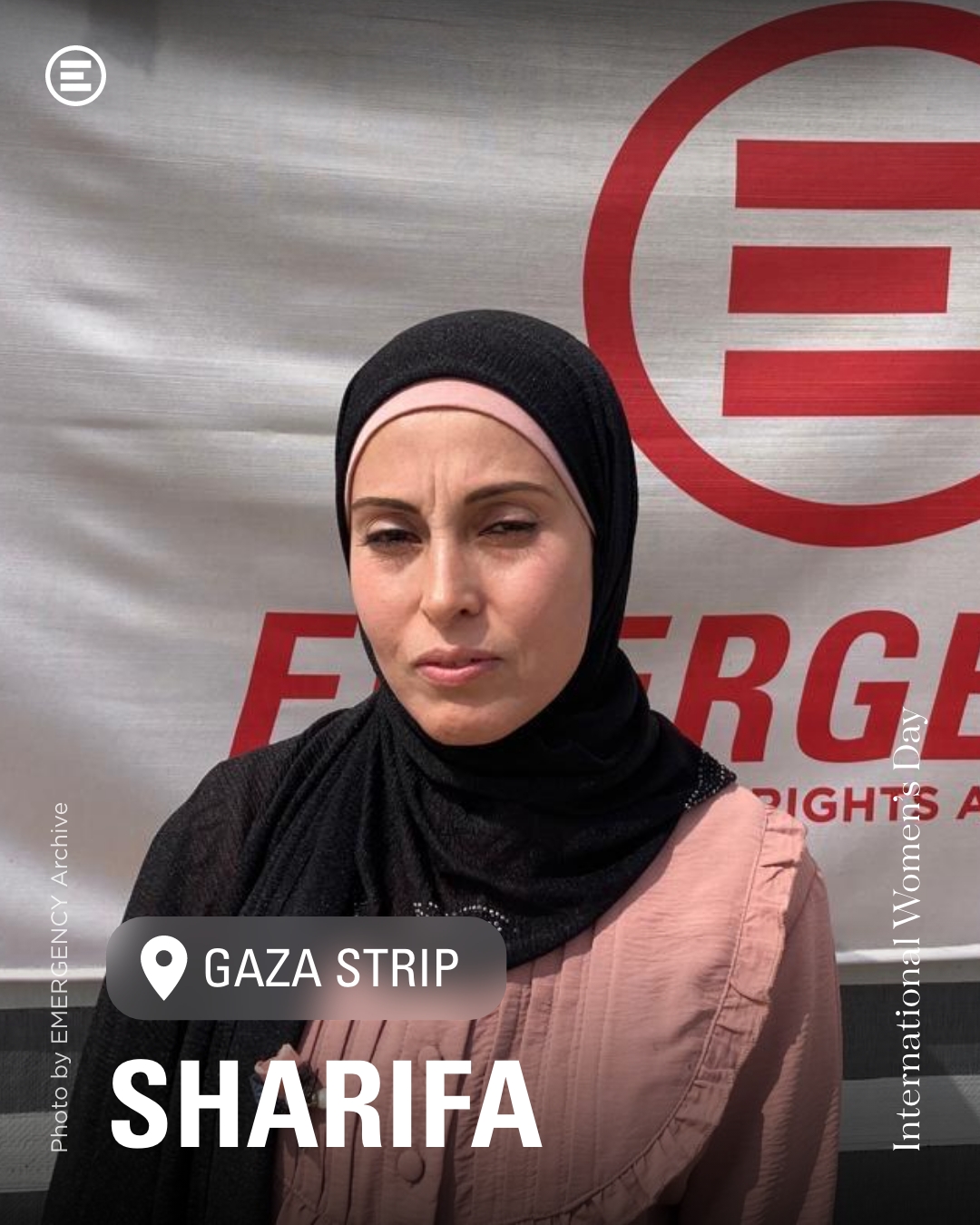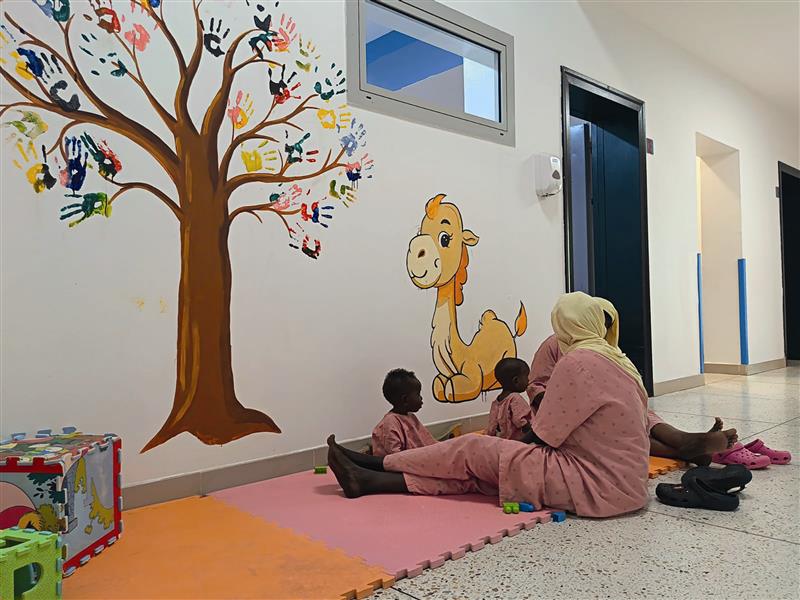The war in Sudan has raged for more than 1,000 days. The fighting continues to…

International Women’s Day 2025: Testimonies From Our Facilities Around the World
In all of EMERGENCY’s facilities around the world, we invest in women’s professional development – even in contexts where asserting women’s rights can be a daily challenge.
Thanks to academic teaching, in-depth practice sessions and continuous on-the-job training, healthcare and non-healthcare professionals can develop specialised skills and take on more senior roles that foster both their own professional autonomy and the long-term operational sustainability of the facilities.
Women’s empowerment on our wards can also be an opportunity for awareness and change. Especially in countries where women’s rights are often denied or at risk, investing in women’s skills means investing in a fairer future.
Read the testimonies of Sargul, Isatu, Natalia, Arezo, Daisy, Manahel, Sharifa: among more than 1,000 women colleagues in EMERGENCY’s projects around the world who tirelessly treat the wounded, support mothers and children, respond to emergencies, and with courage and dedication uphold the universal rights to care and human dignity every single day.
SARGUL | IRAQI KURDISTAN
“The polio that struck me when I was two years old left me disabled in one leg. Years later, when I had started working as an accountant, I met another person, also disabled, who told me about EMERGENCY’s Rehabilitation Centre in Sulaymaniyah.
Shortly after the Centre opened, I decided to apply and, after an interview, I was hired. I was overjoyed at the opportunity. I started as a receptionist, but in a short time I became an Ortho Officer. I act as an intermediary between the patient, their needs, and the team of technicians who make their custom-made prostheses.
I also benefit from the experience of having EMERGENCY’s technicians fit my own prosthesis. Every day, I try to convey confidence to people, to encourage them to overcome the difficult stages of disability and regain hope.”
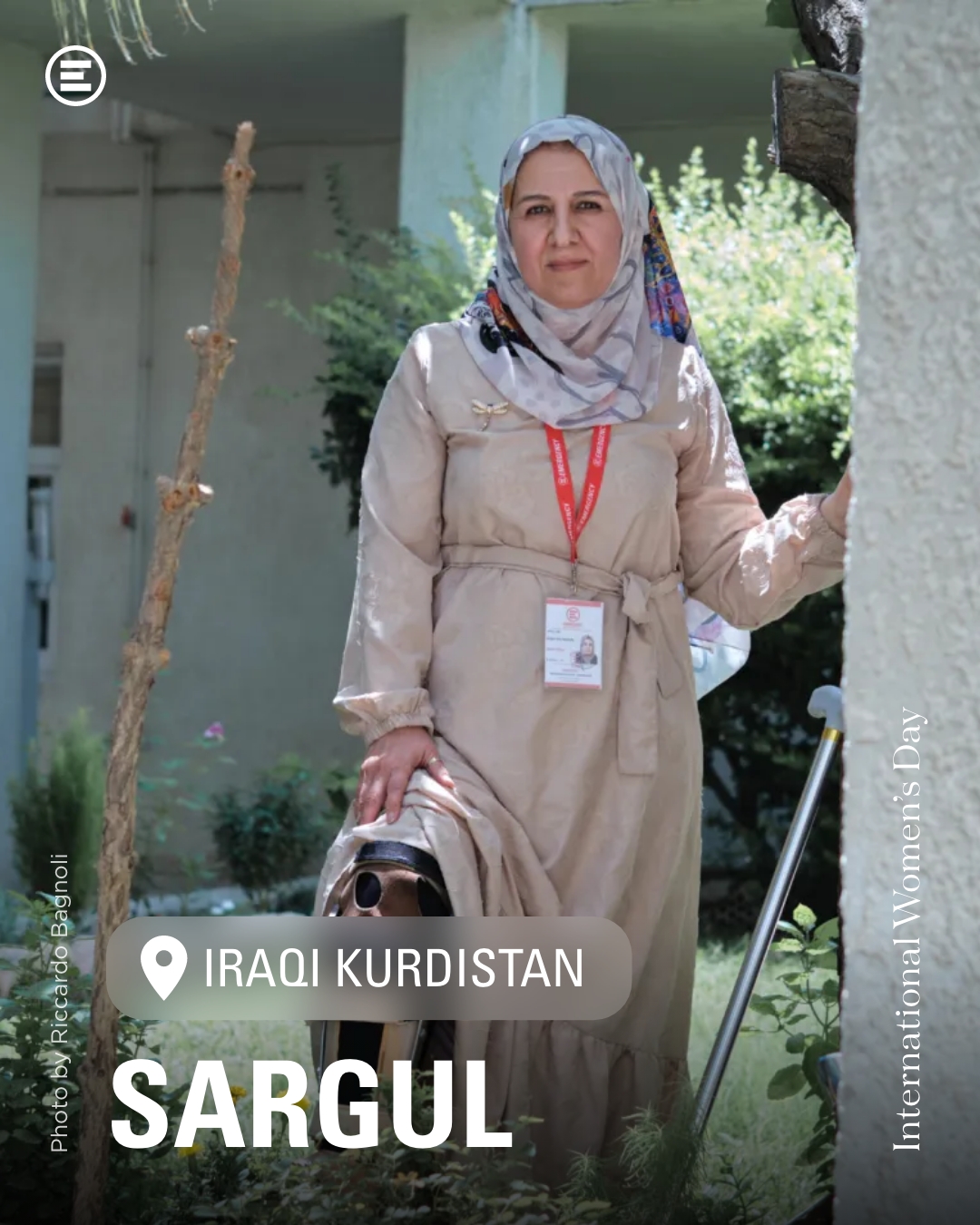
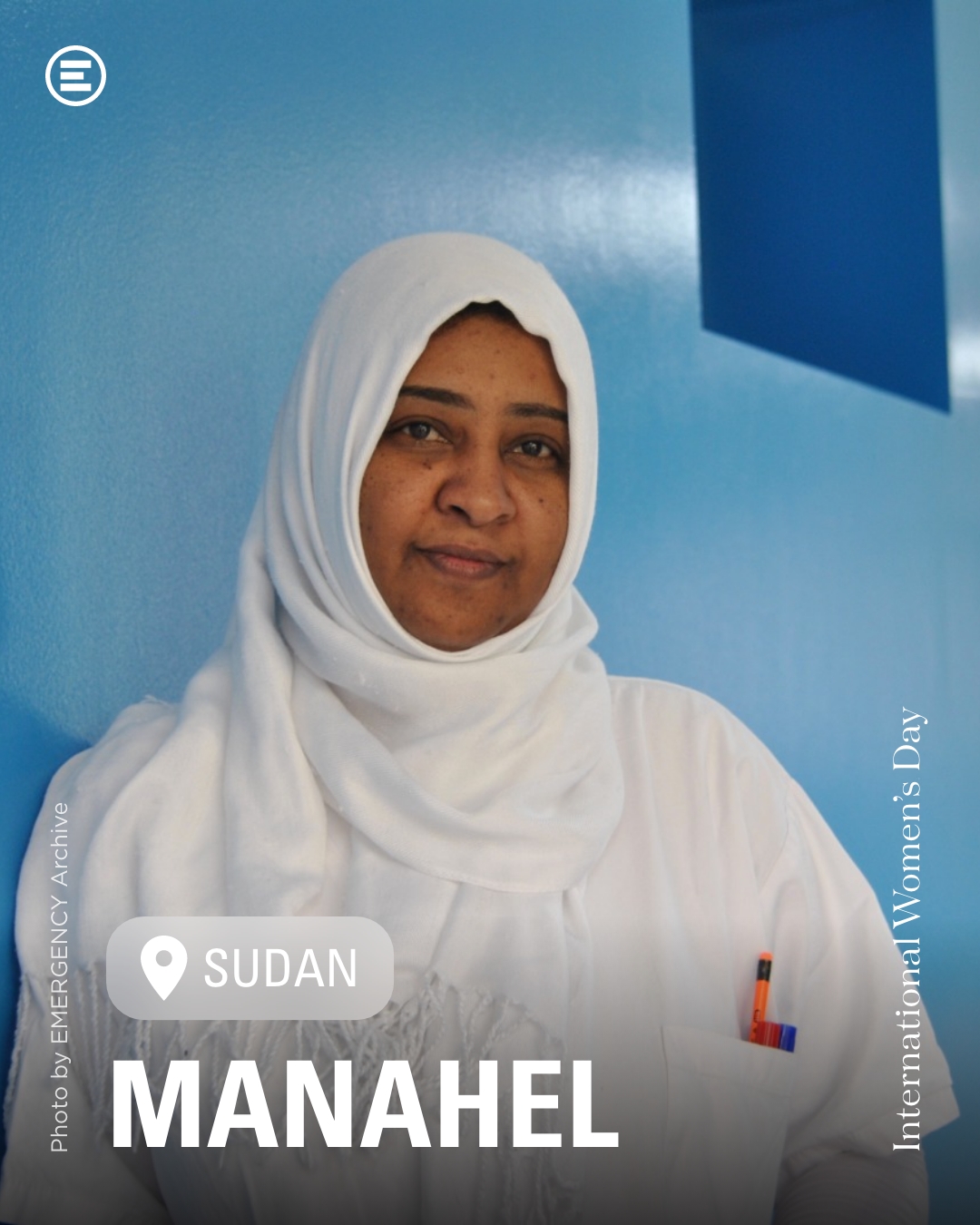
MANAHEL | SUDAN
“After the war broke out in Sudan, the hospital became my home. In Khartoum, my family no longer had a roof over their heads. My child and I needed a safe place to stay that would also give me the security of being able to continue my work as Head Nurse and be independent. First, we evacuated to the north for a couple of months. As soon as there was an opportunity, we returned to the capital. As the name of our hospital suggests – Salam – this is a place of peace, despite everything that happens outside.
I was here when the first heart surgery was performed in this Centre, and I am here now to place my skills and humanity at the service of those in need. Waiting for the end of this war.”
ISATU | SIERRA LEONE
“I was between 13 and 14 years old, returning from school, when I found a full bowl on the table. I was thirsty and I thought it was water, instead it was caustic soda. Due to internal burns, my digestive system was severely damaged, preventing me from being able to swallow anything at all.
At EMERGENCY’s Surgical Centre in Goderich, where there is a specific programme for soda burn victims, I was operated on and received follow-ups to recover my basic functions. After years as a patient, today I have transitioned to the other side. I am a Health Promoter at the Centre. I teach the patients how to feed themselves through the ostomy, which every soda burn victim must live with, and I accompany the families who face this change to re-establish themselves in their communities of origin.
The goal is to preserve patients’ health and dignity after returning home by raising awareness of good practices to follow and the importance of avoiding daily risks, some of which are life-threatening, especially for the youngest.“
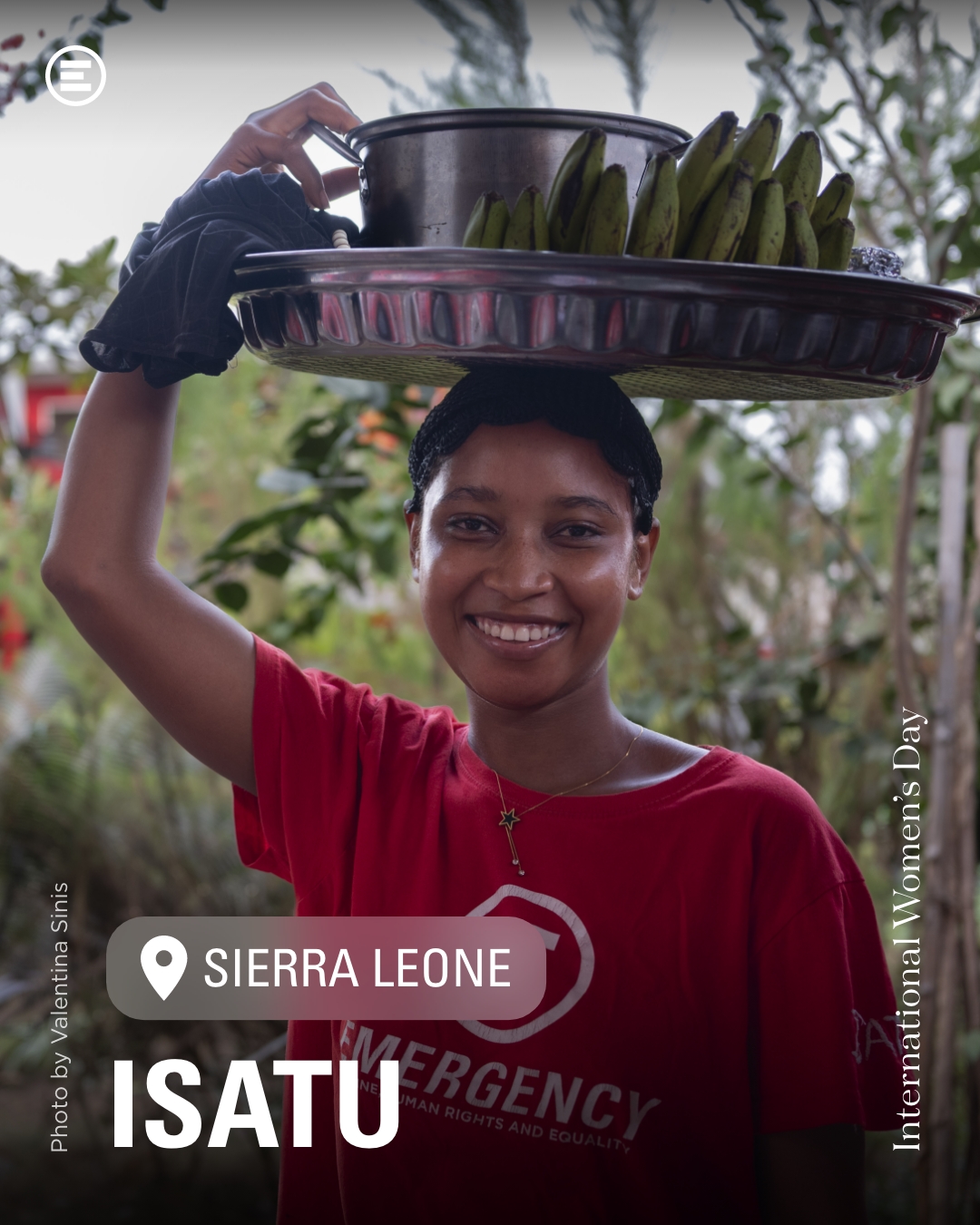
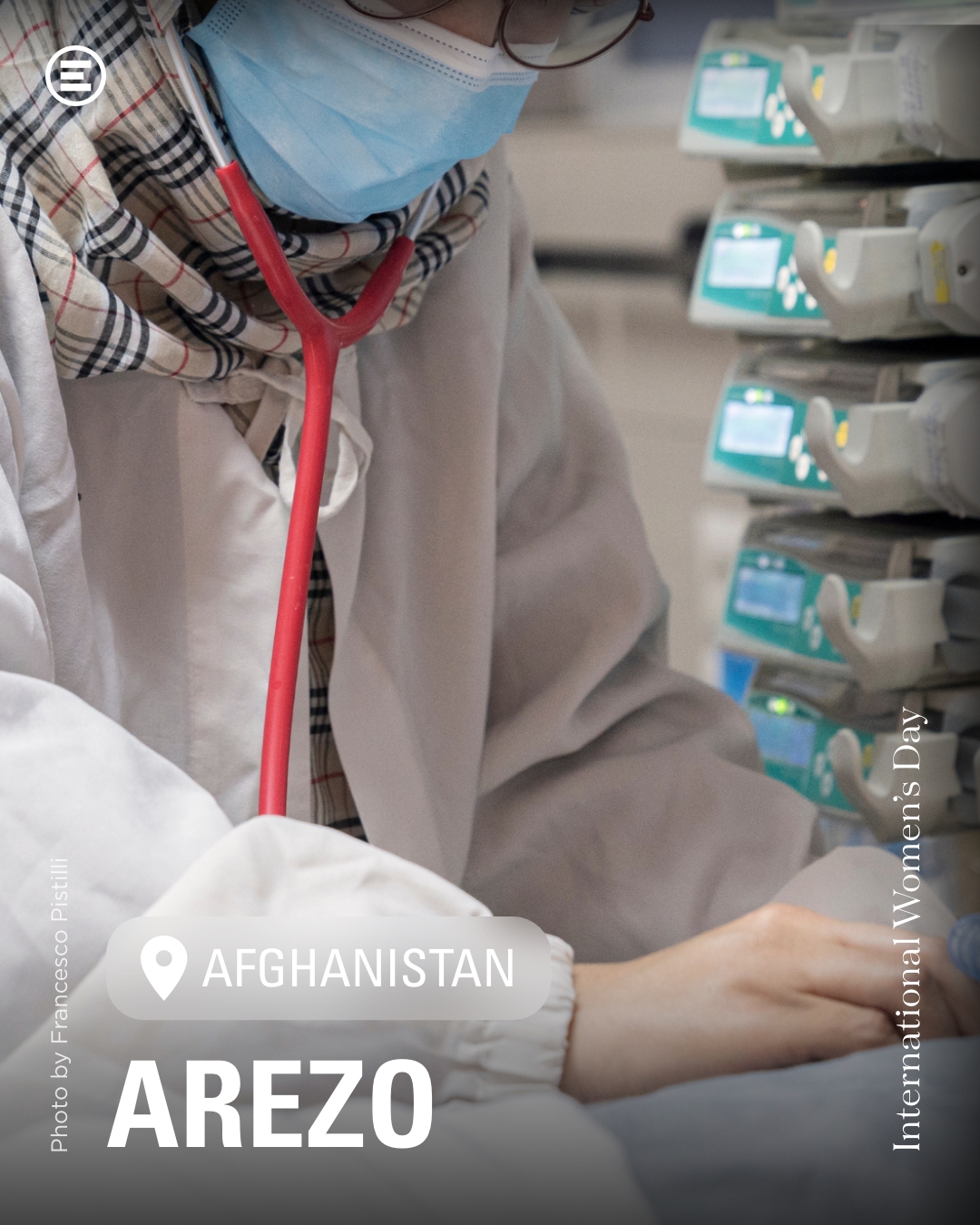
AREZO | AFGHANISTAN
“I am a resident in anaesthesia at the EMERGENCY Surgical Centre in Kabul. I was lucky enough to take my final exam at university before women were banned from higher education. Some friends, unlike me, did not manage to complete it. Having the choice made all the difference. This hospital gives me the opportunity to fulfil myself as a professional, to put my skills into practice for the right to health of thousands of people, including women like me.“
DAISY | UGANDA
“My calling, ever since I was a child, has always been to become a surgeon. At the Children’s Surgical Hospital in Entebbe, I found training programmes that allowed me to raise the level of my skills higher and make great strides. I am proud to be able to manage both my professional growth and my family life. It motivates me to give my best, always.”
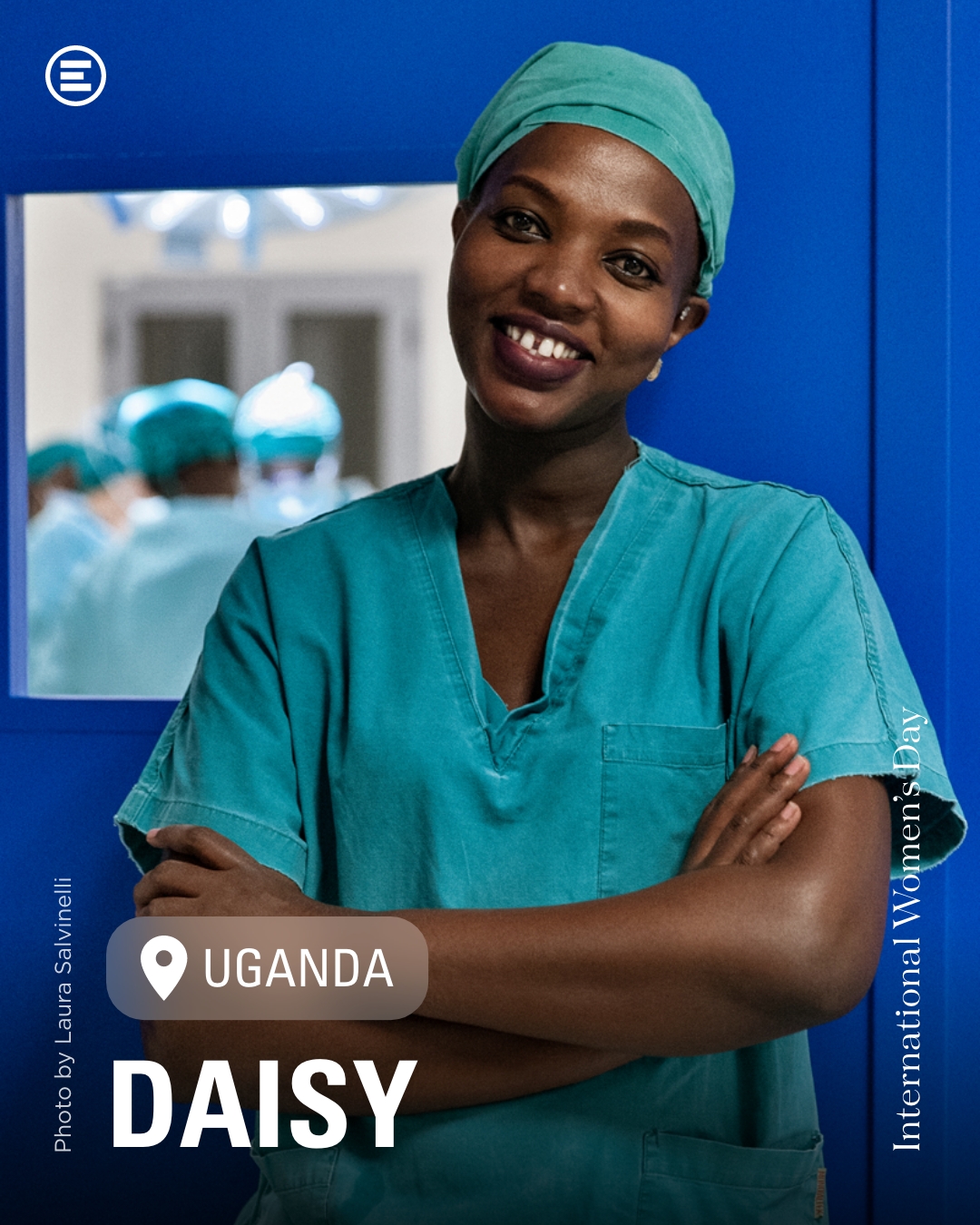
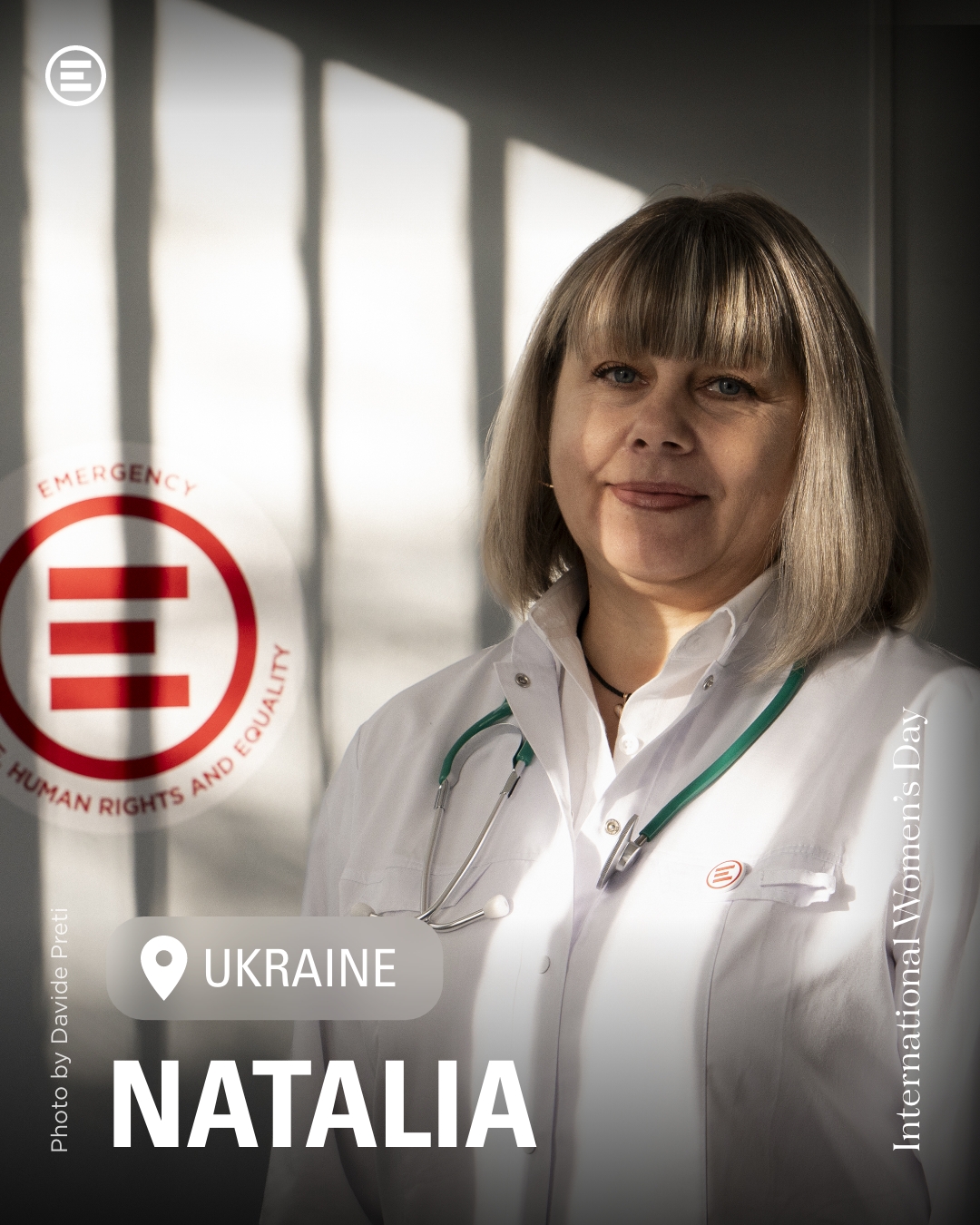
NATALIA | UKRAINE
“I have worked for a long time, but I was surprised to find myself, just now, contributing to this project that directly involves the places where I grew up. Before the opening of the EMERGENCY Clinics, many people were left without adequate healthcare. Even 10 kilometres becomes a difficult distance to travel for treatment if you don’t have the proper means of transport or find it difficult to move around independently. In the outpatient clinic, I visit patients, check vital signs and cooperate with medical specialists to indicate treatment. My wish for the Ukrainian people is that they can stay healthy and, soon, find peace.“
SHARIFA | GAZA STRIP
“Before the war, I lived in northern Gaza with my husband and our three children, but when the bombing began, we were forced to flee. We stayed in a shelter for three weeks, despite the shortage of water, sanitation, food and electricity. The shelling was relentless and violent, so we decided to flee further south, to the Nuseirat camp. We lived in a tent for two months and then we moved further south again, to Rafah. But the war caught up with us there, too: the city was razed to the ground by months of uninterrupted bombing.
In one of these attacks, my brother was seriously injured. We continued to flee, from camp to camp, until we reached the so-called ‘humanitarian zone’ in al-Mawasi. There, survival was a daily challenge: flour cost 10 dollars per kilo… a huge amount when I think that in other countries, it costs just a few cents.
At the edge of the camp is the clinic supported by EMERGENCY. I decided to put myself forward for a job: “I want to give more to my children, put myself to the test,” I said. I immediately felt welcomed, and in no time I became part of the team as a cleaner. When the ceasefire came, I felt the need to go home. But home no longer existed, it had been completely destroyed. There was nothing left. No clean water for miles, little food, just rubble everywhere. I realised I could not stay there.
So I went back to the clinic to continue my work. I took everything I have with me: my determination.”
